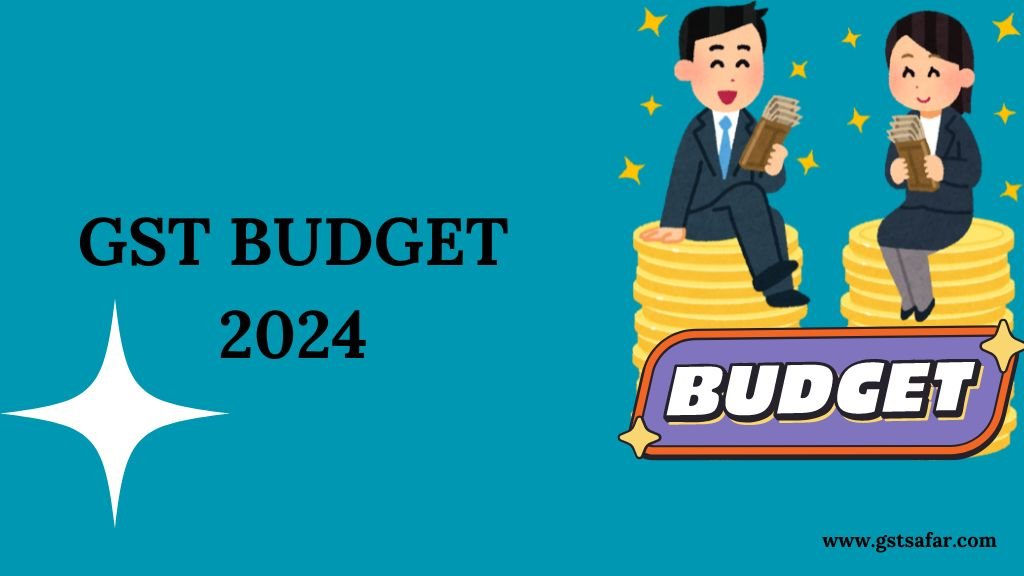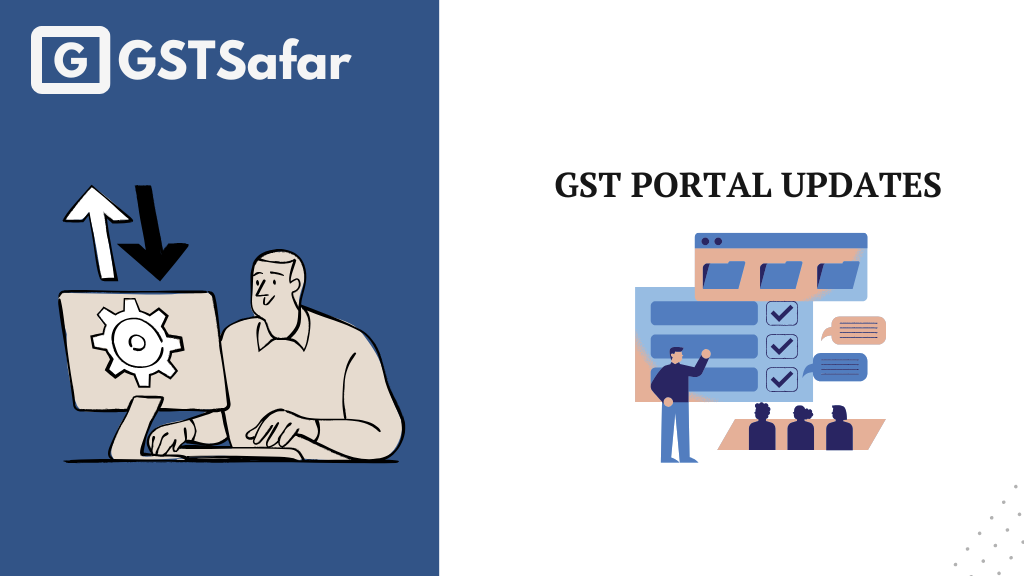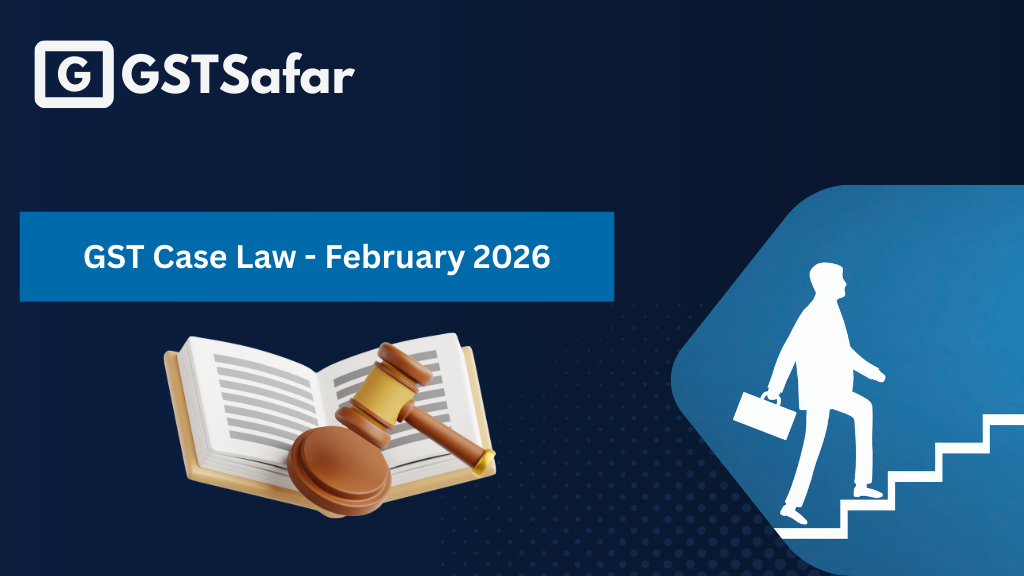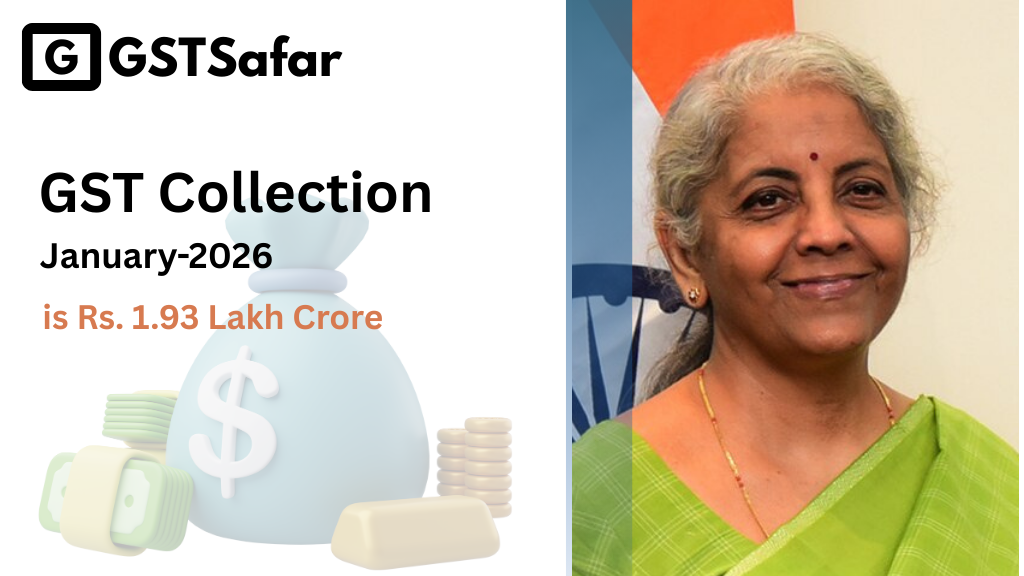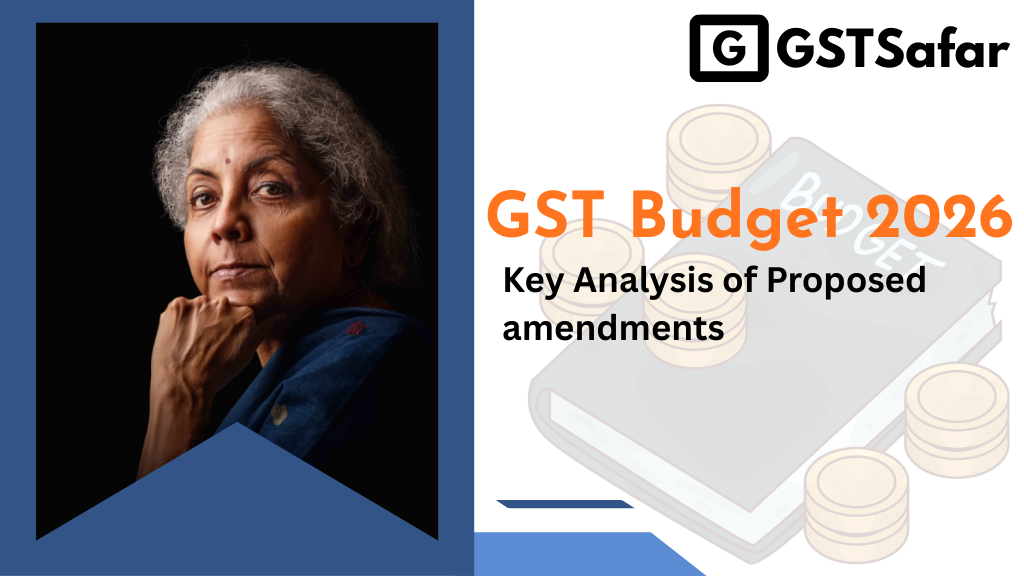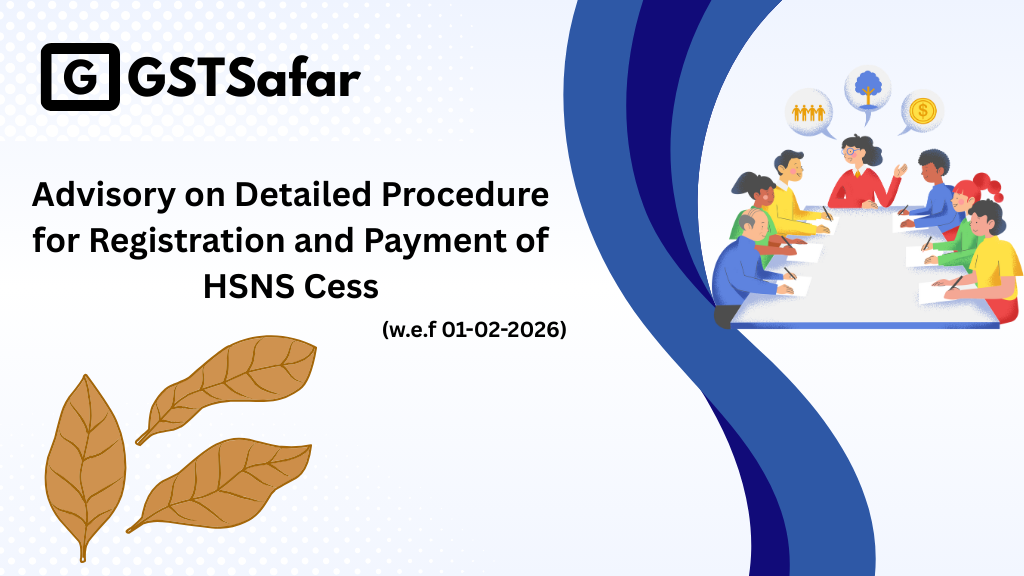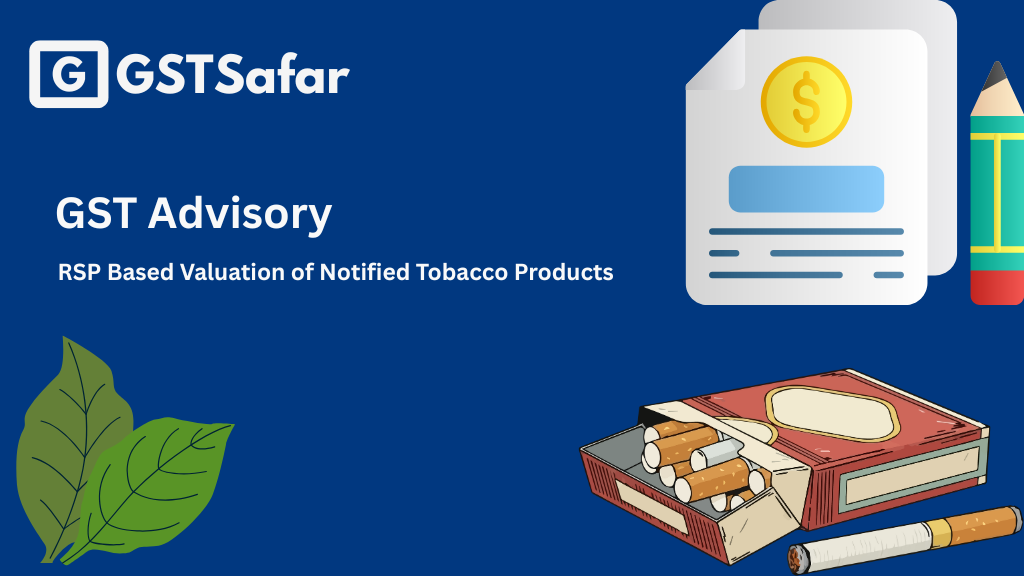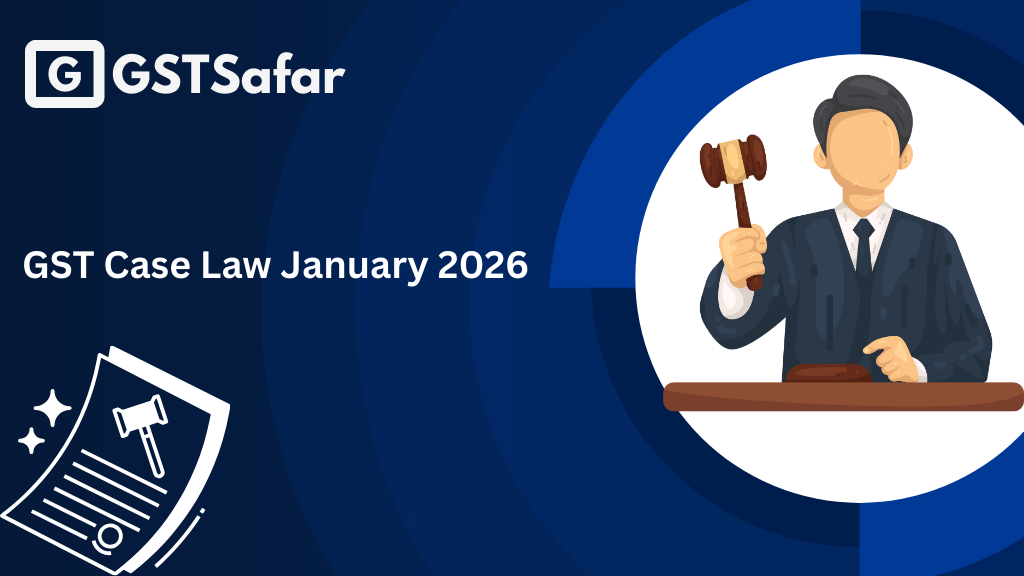Introduction of GST Budget 2024
This article contains all the recent amendments proposed in Finance Bill 2024.Clauses 110 to 153 of this Finance Bill represents gst changes in Budget 2024. All the clauses will come into force on enactment of finance bill in parliament.
This article has been prepared topic wise with our detailed analysis as and when required. References of relevant clauses of Finance Bill 2024 have been given at bottom each topic of changes in gst in budget 2024. Please kindly note that wherever the word CGST Act 2017 is mentioned, it is to be understood that there will be identical change to similar act SGST and UTGST Acts of states and Union Territories
Certain Alcohol Used in Manufacturing Alcoholic Liquor is being exempt from levy of GST
Sections 9 of the CGST Act and Section 5 of the IGST Act are going to be changed so that un-denatured Extra Neutral Alcohol (ENA) or rectified spirit, which is used to make alcoholic beverages for human consumption, will no longer be subject to GST (Goods and Services Tax). The same changes are also planned for the IGST (Integrated GST) and UTGST (Union Territory GST) Acts. This means that these specific types of alcohol used in making liquor won’t have GST applied to them.
| Sub section (1) of Section 9 of CGST Act 2017 & section 5(1) of IGST Act,2017 is being amended by Clause 110 & 147 of Finance Bill 2024 This amendment will come in to force on such date as the central Government may, by the notification in Official Gazette, appoint. |
Introduction of Section 74A for Tax Determination and Penalty Provisions from Financial Year 2024-25
A new Section 74A has been added to the GST laws, which will start from the financial year 2024-25. This section sets up a standard process and timeline for sending notices and orders in cases of both honest mistakes and intentional fraud or misrepresentation
For honest mistakes (bonafide cases), the process will follow specific timelines. However, if it turns out that the taxpayer was acting fraudulently, the penalties will be different and potentially higher.
| Provisions | Details |
| Purpose | To provide a common mechanism and timelines for demand and recovery under GST for financial year 2024-25 onwards. |
| Notice Issuance (Sub-section 1) | Proper officer issues notice if tax is unpaid, short paid, erroneously refunded, or if input tax credit is wrongly availed/utilized. No notice for amounts less than Rs. 1,000. |
| Time Limit for Notice (Sub-section 2) | Notice must be issued within 42 months from the due date of annual return or from the date of erroneous refund. |
| Further Statements (Sub-sections 3-4) | Additional details of tax issues can be provided in further statements if based on the same grounds as the initial notice. |
| Penalties (Sub-section 5) | 10% of tax due or Rs. 10,000 (whichever is higher) for non-fraud cases; full tax amount for fraud cases. |
| Order Issuance (Sub-sections 6-7) | Proper officer determines and issues order on tax, interest, and penalties within 12 months of notice. Possible 6-month extension. |
| Penalty in case of other than fraud (Sub-section 8) | Taxpayer can pay tax and interest before notice to avoid Penalty. No penalty if paid within 60 days of notice. |
| Fraud Cases Payment (Sub-section 9) | For fraud cases, taxpayer can pay tax, interest, and 15%-50% penalty at different stages to conclude proceedings. |
| Shortfall Handling (Sub-section 10) | If pre-notice payment is insufficient, the proper officer issues notice for the shortfall amount. |
| Self-assessed Tax (Sub-section 11) | Penalty applies if self-assessed tax or collected tax is unpaid within 30 days of due date. |
| Applicability (Sub-section 12) | Applies to tax determinations for the financial year 2024-25 onwards. |
| Explanation 1 | “All proceedings” exclude proceedings under section 132. Concluded proceedings against the main person end proceedings against others liable for penalties. |
| Explanation 2 | “Suppression” means failure to declare required facts or information in returns or documents, or failure to provide information when asked in writing. |
- Starting from the financial year 2024-25, Section 74A will replace Sections 73 and 74 for demand and recovery under GST. This means:
- Sections 73 and 74 will only apply to the financial year 2023-24 and earlier.
Section 74A will apply from the financial year 2024-25 onwards
To implement this change, other sections of the CGST Act have been updated to refer to Section 74A. These sections include Section 10, Section 21, Section 35, Section 49, Section 50, Section 51, Section 61, Section 62. Section 63, Section 64, Section 65, Section 66, Section 75, Section 104, Section 107, Section 127.
| New section 74A is being inserted by clause 134 of Finance Bill 2024 This amendment will come in to force on such date as the central Government may, by the notification in Official Gazette, appoint. |
Government’s Authority to Address Common Tax Practices and Forgive Unpaid Taxes
A new Section 11A is being added to the CGST Act, 2017, allowing the Government to address common practices of not charging or undercharging central tax on certain goods or services. Based on the Council’s recommendation, the Government can issue a notification stating that the central tax that should have been paid does not need to be paid. This applies whether tax was not charged at all or charged at a lower rate. Essentially, the Government can officially recognize and forgive unpaid tax for these widespread practices.
| New section 11A & 6A in CGST Act,2017 & IGST Act,2017 is being inserted by clause 112 & 148of Finance Bill 2024 This amendment will come in to force on such date as the central Government may, by the notification in Official Gazette, appoint. |
Proposed Changes to Invoice Issuance in case of RCM & Time of Supply
Section 31(3)(f): This section will now include a rule that sets a specific time period for when a recipient must issue a self-invoice for supplies received under the Reverse Charge Mechanism (RCM). The exact time limit will be defined in the CGST Rules.
Section 13(3): This section has been updated to use the date when the recipient issues the invoice to determine the time of supply for services under RCM. This means the date on the self-invoice issued by the recipient will be used to figure out when the tax on these services is due.
| Sub section 3 of section 13 is being amended by clause 113 of Finance Bill 2024 Clause (f) of Sub section 3 of section 31 is being amended by clause 118 of Finance Bill 2024 Explanation in sub section (3) of section 31 is being inserted by clause 118 of Finance Bill 2024 This amendment will come in to force on such date as the central Government may, by the notification in Official Gazette, appoint. |
Extension for claiming ITC for Past financial years & for revoked registration is being inserted
Registered persons now have an extended deadline to claim Input Tax Credit (ITC) on invoices or debit notes related to the financial years 2017-18, 2018-19, 2019-20, and 2020-21 up to November 30, 2021. A new rule added to Section 16 of the CGST Act allows ITC claims for these years in any return filed under Section 39, overriding previous restrictions, but the claim must be made by the November 30, 2021 deadline.
Additionally, a new sub-section (6) allows registered persons whose GST registration was canceled and later reinstated to claim ITC for invoices or debit notes that were not restricted at the time of cancellation. This claim can be made in a return filed by November 30 following the financial year of the invoice or debit note or upon furnishing the relevant annual return, whichever is earlier. Alternatively, they can claim ITC for the period between cancellation and revocation, provided the return is filed within 30 days of the revocation order, whichever is later. These amendments take effect from July 1, 2017, and if tax has already been paid or ITC reversed, no refund will be given
| New Sub section 5 & 6 of section 16 is being inserted by clause 114 of Finance Bill 2024 This amendment will come in to force on such date as the central Government may, by the notification in Official Gazette, appoint. |
The scope of blocked credit is being restricted.
Section 17(5) of the CGST Act is being amended to make it clear that Input Tax Credit (ITC) will not be available for tax paid under Section 74, but only for demands up to the financial year 2023-24. This change is made to align with the introduction of Section 74A. Additionally, references to Sections 129 and 130, which deal with the detention and confiscation of goods during transit, will be removed from the list of credit restrictions under Section 17(5). This means that taxes paid under Sections 129 and 130 will now be eligible for ITC
| Sub section 5 of section 17 is being amended by clause 115 of Finance Bill 2024 This amendment will come in to force on such date as the central Government may, by the notification in Official Gazette, appoint. |
Mandatory Electronic Filing of Monthly Returns for Tax Deducted at Source under Section 51
Even if no tax deductions are made under Section 51 for a particular month, the person is still required to file a return for that month. Every registered person who is required to deduct tax at source under Section 51 must now electronically submit a return every month in the prescribed form, manner, and time
| Sub section 3 of section 39 is being substituted by clause 120 of Finance Bill 2024 This amendment will come in to force on such date as the central Government may, by the notification in Official Gazette, appoint. |
Proposed Amendments to Standardizing Refund Restrictions for Exported Goods Subject to Export Duty
No refund of unutilized input tax credit or integrated tax paid for zero-rated supplies of goods will be allowed if these zero-rated goods are subjected to export duty. This means that if goods that are considered zero-rated (typically exported goods) are also subject to export duty, you cannot claim a refund for the input tax credit or integrated tax related to those goods.
It has also been proposed that, now in the case of exporting specific goods or services by paying integrated tax, the supplier can claim a refund of the tax paid, only they follow the provisions of section 54 of the Central Goods and Services Tax Act or the related rules.
| Sub section 15 of section 54 is being substituted by clause 124 of Finance Bill 2024 Sub Section 4 of Section 16 of IGST Act is being amended by clause 149 of Finance Bill 2024 Sub section 5 of Section 16 of IGST Act is being inserted by clause 149 of Finance Bill 2024 This amendment will come in to force on such date as the central Government may, by the notification in Official Gazette, appoint. |
Proposed Amendment to Clarifying Authorized Representative Appearance in Compliance with summons
Currently, if a person is summoned under Section 70(1) of the CGST Act, they must attend in person. A new sub-section (1A) is being introduced to allow the summoned person to attend through an authorized representative if the officer permits it. Additionally, it is required that anyone appearing, either in person or through a representative, must tell the truth during the examination.
| Sub section 1A of section 70 is being inserted by clause 131 of Finance Bill 2024 This amendment will come in to force on such date as the central Government may, by the notification in Official Gazette, appoint. |
The applicability of section 73 is being restricted to the period up to FY 2023-24.
The applicability of section 73 & 74 is to be restricted for the determination of tax for the period up to the financial year 2023-24.
| Sub section 12 of section 73 is being inserted by clause 132 of Finance Bill 2024 Sub section 12 of section 74 is being inserted by clause 133 of Finance Bill 2024 This amendment will come in to force on such date as the central Government may, by the notification in Official Gazette, appoint. |
Proposed Addition of Section 75(2A) for Redetermination of Penalty under Specific Conditions
Clause 135 of the Bill proposes adding a new sub-section (2A) to section 75 of the Central Goods and Services Tax Act. This new sub-section will allow for the penalty demanded under clause (ii) of sub-section (5) of the proposed section 74A to be re-determined under clause (i) of the same sub-section if charges of fraud, willful misstatement, or suppression of facts are not proven.
| Sub section 2A of section 75 is being inserted by clause 135 of Finance Bill 2024 This amendment will come in to force on such date as the central Government may, by the notification in Official Gazette, appoint. |
Proposed Role of the Principal Bench of GSTAT in Anti-Profiteering Cases
The GST Appellate Tribunal will now examine and adjudicate cases mentioned in section 171(2) of the CGST Act, 2017, if they are notified under that section. These matters are proposed to be handled exclusively by the Principal Bench. Additionally, the government is empowered to notify the types of cases that shall be heard only by the Principal Bench of the Appellate Tribunal.
In this budget, it is proposed that matters related to anti-profiteering will be examined and adjudicated by the Principal Bench of the GST Appellate Tribunal (GSTAT). Additionally, the government is given the power to notify other types of cases that will be heard exclusively by the Principal Bench of GSTAT.
| Sub section 1 of section 109 is being amended by clause 138 of Finance Bill 2024 Sub section 5 of section 109 is being amended by clause 138 of Finance Bill 2024 This amendment will come in to force on such date as the central Government may, by the notification in Official Gazette, appoint. |
Proposed Amendments in Appeal Timeframes, Review Processes, and Pre-Deposit Requirements
Government has proposed changes in sub section (1) of section 112 of CGST Act,2017.
From 01-08-2024, appeal shall be filed within 3 months from the date of receipt of the order, or by date as may be notified by the Government based on the Council’s recommendations, whichever is later.
Section 112(6) sets a time limit for taxpayers to file appeals with the appellate tribunal. Both taxpayers and the tax department now have a specified period within which they must submit their appeals to the appellate tribunal
Government has proposed the changes in sub section (8) clause (b) of section 112 of CGST Act,2017 for reduction in Pre-deposit amount during the appeals under GST.
Changes to Pre-Deposit Requirements:
- Appeals with Appellate Authority:
- The maximum pre-deposit amount for CGST has been reduced from Rs. 25 crores to Rs. 20 crores for CGST & SGST each.
- Appeals with Appellate Tribunal:
- The pre-deposit percentage has been reduced from 20% to 10%.
- The maximum pre-deposit amount for CGST has been reduced from Rs. 50 crores to Rs. 20 crores for CGST & SGST each.
| Sub section 1 & 3 of section 112 of CGST Act,2017 is being amended by clause 139 of Finance Bill 2024 5th proviso in section 20 of IGST Act,2017 is being amended by clause 150 of Finance Bill 2024 This amendment will come in to force on such date as the central Government may, by the notification in Official Gazette, appoint. |
Proposed Amendment in Penalty provision for E-Commerce Operators
The penalty rules for E-commerce operators (ECOs) under Section 122(1B) are being updated. Now, these penalties will only apply to ECOs who are required to collect tax at source under Section 52. This means that only those ECOs responsible for collecting tax at source will be subject to these specific penalties
| Sub section 1B of section 122 is being amended by clause 140 of Finance Bill 2024 This amendment will come in to force on such date as the central Government may, by the notification in Official Gazette, appoint. |
Proposed New Section 128A for Conditional Waiver of Interest and Penalty
In this budget New section 128A is being introduced in the Central Goods and Services Tax Act. This section allows for a conditional waiver of interest and penalty for demand notices issued under section 73 of the Act for the financial years 2017-18, 2018-19, and 2019-20. However, this waiver does not apply to demand notices related to erroneous refunds.
Additionally, if interest and penalty have already been paid for any demand for these financial years, no refund will be given for those payments.
The summary of the new section 128A are as under:
Key Provisions:
- Waiver Conditions: If a person owes tax based on:
- A notice or statement issued under section 73(1) or 73(3), with no order issued under section 73(9).
- An order issued under section 73(9), with no further orders under section 107(11) or 108(1).
- An order issued under section 107(11) or 108(1), with no further order under section 113(1).
- For the period between July 1, 2017, and March 31, 2020.
- If the person pays the full tax amount by the notified date, no interest or penalty will be charged, and related proceedings will be concluded, subject to conditions.
2. Special Cases:
- If a notice under section 74(1) leads to an order as directed by an appellate authority or court, this will be treated as covered under clause (a) or (b) of the waiver conditions.
- If an appeal or other proceedings are ongoing, the person must pay any additional tax determined within three months of the final order
3. Refunds:
- No refund will be given for interest and penalties already paid.
4. Writ or Appeals pending as the case may be
No benefit of this section unless writ or appeal withdrawn before the date notified.
5.Exclusions:
- The waiver does not apply to amounts owed due to erroneous refunds.
- The waiver does not apply if the person has pending appeals or writ petitions that have not been withdrawn by the notified date.
6. Finality:
Once the specified amount is paid and proceedings are concluded, no further appeal under sections 107(1) or 112(1) will be allowed against the related orders.
This section allows taxpayers to settle their tax dues for specific past periods with a waiver of interest and penalties, provided they meet certain conditions and pay the required amounts within the specified timeframe.
| New section 128A is being inserted by clause 142 of Finance Bill 2024 This amendment will come in to force on such date as the central Government may, by the notification in Official Gazette, appoint. |
Proposed amendment in availment of Transitional credit for Input Service Distributor
Changes is being proposes to amend sub-section (7) of section 140 for Transitional arrangement for input tax credit. This amendment aims to enable the availment of transitional credit for eligible CENVAT credit related to input services received by an Input Services Distributor before the appointed day, provided the invoices for these services were also received before that date. This amendment is set to take effect from July 1, 2017.
| Sub section 7 of section 140 is being amended by clause 143 of Finance Bill 2024 This amendment will come in to force on such date as the central Government may, by the notification in Official Gazette, appoint. |
Proposed amendment in Anti-Profiteering Provision in Section 171
The provision of section 171 (2) to be amended to empower the government to notify the date from which the authority under this section shall not accept any application for anti-profiteering cases.
The anti-profiteering provision allows the government to empower an existing authority under any current law to examine applications related to anti-profiteering. An explanation has beenadded to section 171, specifying that the appellate tribunal may be considered as the authority for the purposes of this section.
| Sub section 2 of section 171 is being amended by clause 144 of Finance Bill 2024 This amendment will come in to force on such date as the central Government may, by the notification in Official Gazette, appoint. |
Proposed amendment to Schedule III for Treatment of Co-Insurance and Reinsurance Premiums
Clause 145 of the Bill proposes an amendment to Schedule III by inserting paragraphs. This amendment specifies that when a lead insurer distributes the co-insurance premium to a co-insurer in co-insurance agreements, this activity will not be considered as a supply of goods or services. However, this is only applicable if the lead insurer pays the entire tax liability on the total premium amount paid by the insured.
The Bill also proposes that services provided by an insurer to a reinsurer, where a ceding commission or reinsurance commission is deducted from the reinsurance premium, will not be considered as a supply of goods or services. This is only applicable if the reinsurer pays the tax liability on the entire reinsurance premium amount, including the reinsurance or ceding commission.
| Schedule III of CGST Act is being amended by clause 145 of Finance Bill 2024 This amendment will come in to force on such date as the central Government may, by the notification in Official Gazette, appoint. |
No Refunds for Tax Paid or ITC Reversed Prior to Section 114
Clause 146 of the Bill states that no refunds will be given for any tax already paid or input tax credit reversed if those payments or reversals would not have been required if section 114 had been in effect all along. In other words, if section 114 had always been applied, and no tax or credit adjustments were needed, then any such taxes paid or credits reversed previously will not be refunded.
| Section 114 of CGST Act is being amended by clause 146 of Finance Bill 2024 This amendment will come in to force on such date as the central Government may, by the notification in Official Gazette, appoint. |
Restriction is being imposed on refund of zero rated supply subject to export duty.
- Changes have been proposed in section 16(4) of IGST Act,2017 for Zero rated supply.
In this budget, it has been proposed that a certain group of people, as notified by the government through notifications, can make zero-rated supplies (exports) by paying integrated tax. They can claim a refund of the tax they paid, but only if they follow the provisions of section 54 of the CGST Act or the related rules.
It has also been proposed that, now in the case of exporting specific goods or services by paying integrated tax, the supplier can claim a refund of the tax paid, only they follow the provisions of section 54 of the Central Goods and Services Tax Act or the related rules.
Sub section (5) in section 16 is being inserted for Zero rated supply.
This provision states that, despite what is mentioned in subsections (3) and (4), no refund of unutilized input tax credit (ITC) will be allowed for zero-rated supplies of goods or for integrated tax paid on zero-rated supplies of goods if these goods are subject to export duty.
In simpler terms, if goods being exported are subject to an export duty, the exporter cannot claim a refund for any unused input tax credit or for the integrated tax paid on these goods, even though these goods are otherwise considered zero-rated (tax-free) for GST purposes.
| Sub Section 4 of Section 16 of IGST Act is being amended by clause 149 of Finance Bill 2024 Sub section 5 of Section 16 of IGST Act is being inserted by clause 149 of Finance Bill 2024 This amendment will come in to force on such date as the central Government may, by the notification in Official Gazette, appoint. |
Proposed Section 8A in GST Compensation to States Act,2017 for not to recover Cess
The proposed section 8A allows the Government to waive the recovery of cess (a type of tax) that was not levied or under-levied due to common practices.
Key points:
- General Practice Prevalence: If the Government finds that a common practice existed or exists where cess was not charged or was charged at a lower rate on certain supplies of goods or services.
2. Types of Cess Issues:
- Cess was not levied when it should have been.
- Cess was levied at a lower rate than it should have been.
3. Government Action: On the recommendation of the Council, the Government can issue a notification stating that:
- The full amount of cess that should have been paid does not need to be paid.
- The excess cess that should have been paid does not need to be paid.
In simple terms, if a common practice leads to not charging or undercharging cess, the Government can decide not to recover the unpaid amounts through an official notification.
| Section 8A of Section of GST Compensation to States Act 2017 is being inserted by clause 153 of Finance Bill 2024 This amendment will come in to force on such date as the central Government may, by the notification in Official Gazette, appoint. |
